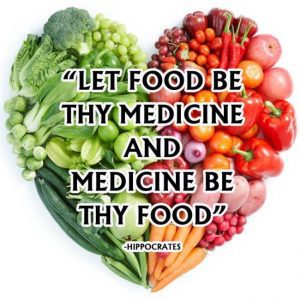FOODIE FRIDAY
The Perfect Scrambled Eggs

As a Christian Fitness Ministry we also focus a great deal on nutrition. And today, we’re bringin’ it back to the basics! Here’s a great breakfast for any morning from tasteaholics.com.
Today’s Foodie Friday Recipe:
https://www.tasteaholics.com/recipes/breakfast-recipes/the-perfect-scrambled-eggs/

Our belief’s on Nutrition from a Biblical and Medicinal Perspective:
1 Corinthians 6:19-20 “Or do you not know that your body is a temple of the Holy Spirit within you, whom you have from God? You are not your own, for you were bought with a price. So glorify God in your body.”
Genesis 1:29 “And God said, “Behold, I have given you every plant yielding seed that is on the face of all the earth, and every tree with seed in it’s fruit. You shall have them for food.”
Genesis 9:3 “Every moving thing that lives shall be food for you. And as I gave you the green plants, I give you everything.”

Reference: https://draxe.com/food-is-medicine/
“Hippocrates was to thank for the famous quote, “Let food be thy medicine and medicine be thy food” — which we translated to “food is medicine” and use as our motto. Still to this day medical doctors and historians consider Hippocrates to be the founder of medicine as a “rational science.”
Considered to be one of the most influential figures in the history of medicine and healing, Hippocrates was ahead of his time when, around the year 400 B.C, he advised people to prevent and treat diseases first and foremost by eating a nutrient-dense diet.
Why is a calorie not just a calorie when it comes to your health, and how come it matters so much which types of foods you get your calories from?Foods provide us with energy (calories), but they do much more than that.
The foods you include in your diet also play a critical role in controlling inflammation levels, balancing blood sugar, regulating cardiovascular health (including blood pressure and cholesterol levels), helping the digestive organs to process and eliminate waste, and much, much more. Did you know that certain anti-inflammatory foods even contain powerful active ingredients that help control how your genes are expressed?
How Food Works Like Medicine
Perhaps more than anything else in our lives, the foods we regularly eat help determine whether or not we will become ill, or remain healthy into older age. Whether vegetables, fruit, meat, oils or grains, foods contain influential substances including antioxidants, phytonutrients, vitamins, minerals, fatty acids, fiber and much more.
Nutrient deficiencies and toxicity from a poor diet are linked to nearly all modern health conditions. John Hopkins University reports that some 80 percent of cancer patients are believed to be malnourished, and that treatments used to battle cancer (like chemotherapy) only increase the body’s need for nutrients and very high-quality foods even more. (1) You probably already know that diabetes and heart disease (currently the No. 1 killer in the U.S. and most industrialized nations) are also illnesses that are highly influenced by one’s diet — and the same can be said for allergies, autoimmune disorders like arthritis, thyroid disorders and many more.
The expanding field of Nutrigenomics (also called Nutritional Genomics) is devoted to studying how food influences gene expressions and contributes to either health and longevity or to disease and earlier death. The principles behind nutrigenomics can be summarized in several key points: genes play a role in disease development and prevention; a poor diet can be a serious risk factor for many diseases; nutrient deficiencies and toxic chemicals in low-quality foods have an effect on human gene expressions; each person is different in terms of how much their genes/health are impacted by their diet; and a healthy but also personalized diet can be used to prevent, mitigate or cure chronic diseases. (2)
Some of the ways that medicinal foods specifically act like natural protectors against disease and help to slow the effects of aging, include:
- Decreasing & Controlling Inflammation – Inflammation is the root of most diseases and a major contributor to the effects of aging. Inflammation is a response from the immune system when the body perceives it’s being threatened, and it can affect nearly every tissue, hormone and cell in the body. Research also shows that “obesity has a strong inflammatory component,” a problem that now affects nearly two-thirds of all adults in the U.S. (3)
- Balancing Hormones − Hormones affect every part of health, from your energy and cognitive abilities to your body weight and sex drive. Abnormal hormonal changes contribute to accelerated aging, diabetes, obesity, fatigue, depression, low mental capacity, reproductive problems and an array of autoimmune diseases. (4)
- Alkalizing the Body – The human body keeps a tight grip on its internal pH level, working hard to keep it around a pH of 7.36. Studies show that when it comes to the pH and net acid load in the human diet, “there has been considerable change from the hunter-gather civilization to the present.” (5) Processed, low-quality foods make the body more acidic and allow diseases to thrive more easily. An alkaline diet (high in plant foods that are detoxifying) helps with cellular renewal and might promote longevity.
- Balancing Blood Glucose (Sugar) – Diabetes and weight gain are tied to poor insulin response and other hormonal changes. Poorly managed blood sugar levels due to consuming high amounts of sugar and processed carbohydrates can lead to cravings, fatigue, neurological damage, mood disorders, hormonal balances and more. To sustain normal blood sugar, experts recommend that low-glycemic and non-processed carbohydrates take the place of refined, empty calories and added sugar. (6)
- Detoxifying & Eliminating Toxins – Toxicity is tied to poor digestive health, hormonal changes and decreasing liver functioning. In modern society, we are bombarded by chemicals from our diet and environment that contribute to inflammation, autoimmune diseases, infertility, hypothyroidism, fibromyalgia, and so on.
- Improving Absorption of Nutrients – Many of today’s illnesses are due to nutritional deficiencies and high rates of free radical damage. The majority of processed convenience foods are stripped of their natural nutrients or at least partly manmade, packed with synthetic ingredients and preservatives but very low in vitamins, minerals, antioxidants, fiber and enzymes.”
